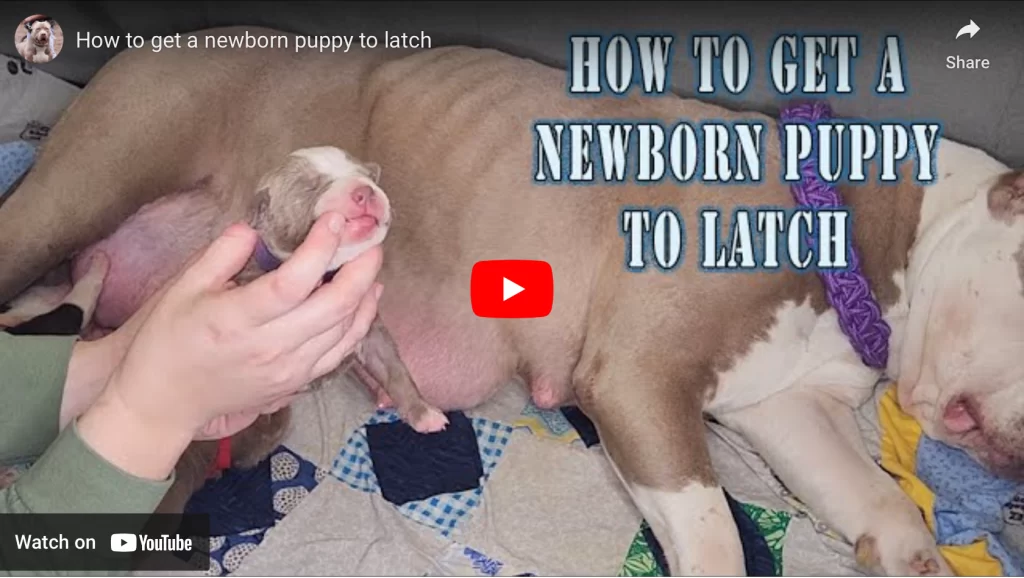When it comes to caring for a nursing mother dog, it is crucial to maintain proper hygiene to ensure the health and well-being of both the mother and her puppies. Knowledge on how to clean mother dog teats is an essential part of this care routine, as it helps prevent infections and keeps the nursing process comfortable for the mother.
In this article, we will explore effective methods on how to clean mother dog teats, with a particular focus on the benefits of using Betadine solution.
Importance of Cleaning Mother Dog’s Teats
The teats of a nursing mother dog are prone to various issues, including bacterial infections, irritation, and clogging. Failing to maintain cleanliness can lead to discomfort, pain, and even the development of mastitis, a painful inflammation of the mammary glands. By regularly cleaning the teats, you can prevent these problems and ensure a smooth nursing experience for both the mother and her puppies.
Also You May Like: How to Get A Newborn Puppy to Latch.

Betadine Solution: An Effective Cleaning Agent
Betadine solution is a widely used antiseptic that contains povidone-iodine. It is commonly recommended by veterinarians and trusted by pet owners for its broad-spectrum antimicrobial properties. Here are the benefits of using Betadine solution to clean the teats of a mother dog:
1. Antimicrobial Action: Betadine solution has potent antimicrobial properties, effectively killing bacteria, fungi, and viruses. When used to clean the mother dog’s teats, it helps eliminate harmful microorganisms that can cause infections, reducing the risk of mastitis and other related issues.
2. Non-Irritating Formula: Betadine solution is formulated to be gentle on the skin. It is less likely to cause irritation or discomfort for the mother dog, even when applied to sensitive areas such as the teats. This ensures a comfortable cleaning experience for the mother, minimizing any potential stress during the process.
3. Effective against Biofilms: Biofilms are slimy bacterial communities that can form on the teats’ surface. These biofilms provide a protective shield for bacteria, making them more resistant to conventional cleaning methods. Betadine solution has been proven effective in breaking down and eliminating biofilms, ensuring a thorough cleaning of the teats.
4. Easy to Use: Betadine solution is readily available in most pharmacies and veterinary clinics, and it is easy to use. Dilute the solution as per the instructions provided and apply it to a clean cloth or cotton pad. Gently wipe the teats, ensuring that the solution reaches all crevices and folds. Remember to rinse the teats thoroughly afterward with warm water to remove any residue.
5. Safe for Nursing Puppies: One concern when using any cleaning agent is its impact on nursing puppies. Betadine solution, when properly diluted and rinsed off, is considered safe for puppies. However, it is crucial to keep them away during the cleaning process to prevent ingestion of the solution.
How to Clean Mother Dog Teats Step by Step
Cleaning mother dog teats using a Betadine solution can be an effective way to maintain hygiene and prevent infections. Betadine is an antiseptic solution that can help kill bacteria and reduce the risk of infection in the teats. Here’s a step-by-step guide on how to clean mother dog teats using Betadine:
Step 1: Gather Your Supplies
Before you begin, ensure you have all the necessary supplies ready:
- Betadine solution (povidone-iodine solution)
- Lukewarm water
- A clean bowl
- Soft clean cloth or cotton balls
- Clean towels
- Disposable gloves (optional)
Step 2: Prepare a Betadine Solution
Start by diluting the Betadine solution with lukewarm water. Follow the instructions on the Betadine bottle for the correct dilution ratio. Typically, a 1:10 dilution (1 part Betadine to 10 parts water) is recommended for cleaning wounds or teats. Pour the diluted solution into a clean bowl.
Step 3: Wash Your Hands and Put on Disposable Gloves
It’s essential to maintain proper hand hygiene to prevent contamination. You can also wear disposable gloves to protect your hands from contact with the Betadine solution.
Step 4: Wet the Cloth or Cotton Ball
Take a soft clean cloth or a cotton ball and dip it into the diluted Betadine solution. Squeeze out any excess liquid to ensure it’s damp but not dripping.
Step 5: Clean the Teats Gently
With the damp cloth or cotton ball, gently clean each teat one at a time. Use a soft circular motion to remove any dirt, debris, or dried milk. Be cautious not to scrub too vigorously, as teats can be sensitive.
Step 6: Rinse the Teats
After cleaning, rinse each teat thoroughly with lukewarm water. This step is essential to remove any remaining Betadine residue, which could irritate the skin if left behind.
Step 7: Pat Dry with a Clean Towel
Using a clean towel, pat the teats dry gently. Ensure that they are completely dry to prevent moisture-related issues or irritation.
Step 8: Observe for Any Signs of Discomfort
After cleaning, closely monitor the mother dog for any signs of discomfort, redness, swelling, or discharge from the teats. If you notice any unusual symptoms, consult your veterinarian promptly.
Step 9: Dispose of Materials Properly
Dispose of any used materials, such as gloves and the cloth or cotton balls, properly according to local waste disposal guidelines.
Step 10: Wash Your Hands Again
After completing the cleaning process, wash your hands thoroughly to ensure that you do not transfer any potential contaminants.
Additional Tips on How to clean mother dogs teats
While Betadine solution is an effective choice, it is also important to follow some general guidelines when cleaning a mother dog’s teats:
1. Frequency
Clean the teats at least once a day during the nursing period. This regular cleaning helps maintain hygiene and prevents the accumulation of debris or bacteria.
2. Gentle Approach
Handle the mother dog’s teats with care, as they may be sensitive or tender due to nursing. Use gentle motions while cleaning to avoid causing discomfort.
3. Observe for Abnormalities
As you clean the teats, keep an eye out for any signs of redness, swelling, discharge, or pain. These may indicate an infection or other issues that require veterinary attention.
4. Hygienic Environment
Create a clean and hygienic environment for the mother dog and her puppies. Regularly change bedding, clean the whelping box, and keep the surrounding area free from dirt and debris.
Conclusion
Maintaining proper hygiene for a nursing mother dog is crucial for the well-being of both the mother and her puppies. Cleaning the teats regularly helps prevent infections and discomfort. Betadine solution, with its antimicrobial properties and gentle formula, offers a reliable method for cleaning mother dog teats.
By using Betadine solution appropriately and following the recommended guidelines, you can ensure a clean and healthy nursing experience for your dog. Remember to consult your veterinarian if you have any concerns or notice any abnormalities during the cleaning process.
Also Read: Reasons Why Mother Dog is Not Feeding Puppies.
I am a highly skilled content writer and SEO expert with a passion for helping small businesses succeed in the digital world. With my extensive knowledge of the latest SEO techniques and strategies, I have successfully assisted numerous clients in improving their website rankings, generating more leads, and driving a significant increase in website traffic.
As a professional content writer and SEO expert, I am confident in my ability to contribute significantly to the success of small businesses. If you are seeking a results-driven, highly skilled digital marketer who can help you increase your ranking, convert new leads, and see a substantial improvement in website traffic, I would welcome the opportunity to collaborate with you.
Website: https://manmadewebsites.com/
Email: hello@digitalmarketingchap.com

